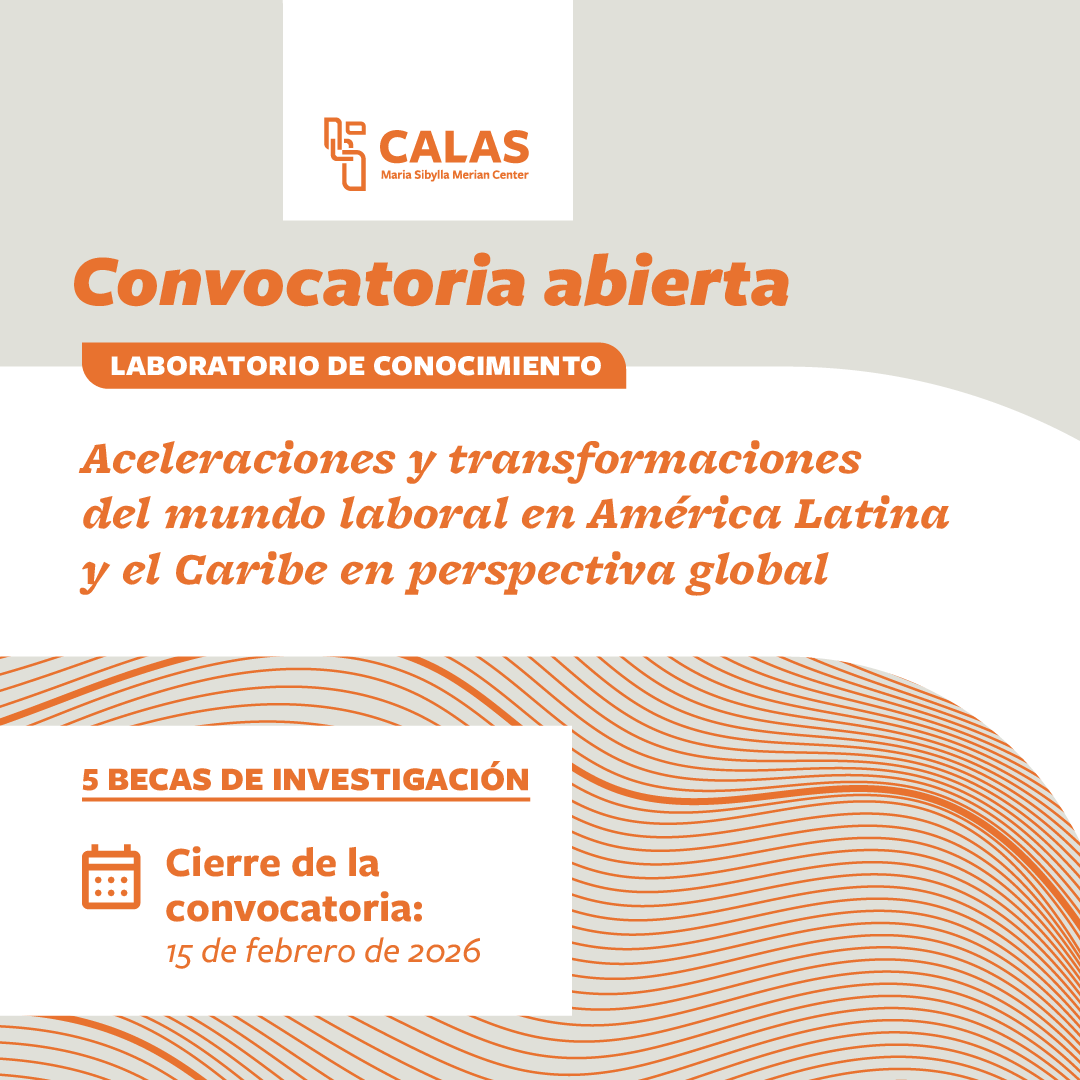1. Up to five research fellowships. Accelerations and transformations in the world of labor
Within the framework of the Knowledge Laboratory “Accelerations and transformations in the world of labor in Latin America and the Caribbean in global perspective,” the Center for Advanced Latin American Studies (CALAS) opens a call for up to 5 research grants lasting three to five months, to be carried out between August and December 2026, at the CALAS headquarters in Guadalajara (Mexico). The Knowledge Laboratory focuses on analyzing the global transformation processes that are eroding old certainties and questioning the foundations of our societies, while creating new horizons for shaping current living conditions.
The cal lis open until February 15, 2026. Conditions can be consulted here.
1. 1. Opening for two senior research fellowships
CALAS senior research fellowship aim to contribute to the development of new methodological and analytical approaches to understanding change and crisis in Latin America. This may include a review of Latin American approaches, theories and methodologies that address crises. The proposed research projects are expected to contribute to reflect, deconstruct and de-center the state of Western-centered knowledge on concepts, dynamics and solutions, and thus adapt them to the context of the region. The call is addressed to outstanding academics with a Ph.D. in the Humanities or Social Sciences. For 2026, two 3-month fellowships are available (1 at CALAS headquarters in Guadalajara, Mexico, and another at the regional site Centralamerica & the Caribbean in San José, Costa Rica.
The call is already clsed. The conditions can be consulted here.
2. Funding for organizing a Plataform for Dialogue
To foster international academic exchange and discussion, CALAS calls for proposals to coordinate a "Platform for Dialogue" at its headquarters in Guadalajara, Mexico. The "Platform for Dialogue" is a collaborative format to promote interdisciplinary, interregional and intergenerational dialogue in relation to a delimited theme. Thematic proposals submitted must address in one way or another the CALAS guiding research program and general approaches. For 2023, funding is awarded to two projects, which can receive up to EUR 20,000 to organize their event.
The call is already closed. The conditions can be consulted here.
3. Call for Papers: International Summer School for Early-Career Scholars 2026
In a joint venture between CALAS and the Pacific Office of the German Historical Institute Washington at UC Berkeley, the International Summer School “250 Years of US-Latin American Relations from 1776 to 2026” will take place at CALAS Headquarters Guadalajara from September 23 to 25, 2026. The event will be structured around three formats of exchange among participants and with the broader public: panels, workshops, and spaces for artistic exhibitions or interventions.
The call is already closed. The conditions can be consulted here.





